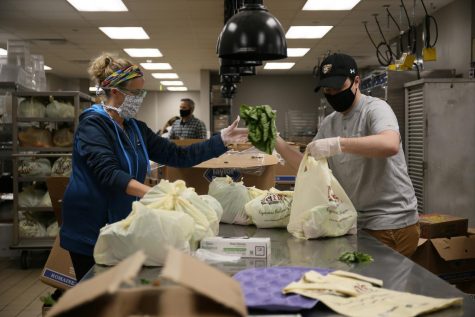Summer 1 classes moved online due to coronavirus concerns
Summer 1 eight-week classes at Oakland University will face a large change this semester: courses will be held entirely online.
An email from the Office of the Registrar sent Sunday, March 22 said instruction for 2020 summer 1 classes will be remote “at least until June 30 and potentially through August,” amid the possibility of continued campus closure because of the coronavirus.
The decision comes after Senior Associate Provost Michelle Piskulich said Friday, March 20 administration has a contingency plan for students taking summer classes. The decision was being discussed then, and administration has now decided to maintain its online-only status through at least the summer 1 semester.
According to Piskulich, the demand for online courses is considerably higher during the summer.
The summer 1 semester runs Monday, May 4 through the end of the final exam period Wednesday, June 24. The current start date for the summer 2 semester is Monday, June 29. Further information on the status of the summer 2 semester will likely be released closer to the date.
As part of the university’s COVID-19 response, Undergraduate Admissions, Student Financial Services and the Office of the Registrar have suspended all in-person services, including face-to-face appointments, campus tours and enrollment management events, through Monday, April 13, according to the OU coronavirus webpage. These services are all offering virtual services to students at this time.
According to the coronavirus webpage, all summer study abroad programs are currently under review, meaning they are not canceled yet. However, if a program is canceled, students will be reimbursed by the University for any expenses not reimbursable from other sources. Students should check with their academic advisers about alternative coursework for the summer in case of a program cancellation.
Registration for summer classes is now open for current students, with an opening date of Friday, April 3 for guest students. Students can set up virtual meetings with their departmental advisers if they need any assistance with course registration.
“Students should have confidence that we are going to be making all of the necessary preparations to make certain that they are able to attend classes in some format, and that they will have the opportunity to achieve graduation, which is what we count, ultimately, for student success,” Piskulich said.
The Office of the Registrar is available to answer questions concerning the registration process via email, instant messaging, and web conference at [email protected] during the office’s standard hours of operation, Mondays-Fridays from 8 a.m.-5 p.m.
The Current Classes and Instruction section of OU’s COVID-19 webpage offers some tips for students transitioning to online learning:
Email is more important than ever
Check your email three times a day (turning on email notifications on your phone can help).
Organize emails from each class into separate folders.
Routine is key
Use Google calendar or planner to create a weekly schedule. Include time for reading, reviewing course materials, working on assignments and studying for quizzes and tests.
Create a “study space” free from clutter and distractions. Be sure to add breaks!
Set a notification so you don’t forget to log in at online meeting times.
Academic support is always available
Tutoring and Supplemental Instruction are being delivered online
View the tutoring schedule at oakland.edu/tutoring.
Schedule a Writing Center appointment at oakland.edu/ouwc.
Check espace.oakland.edu for updates from your SI leader.
Stay in touch with your professor via email and Moodle or by “e-visiting” their office hours regularly.
The delivery is different, but the course is the same
Staying on top of course material is even more important when you are not able to be physically present with your professor and classmates at regularly scheduled times.
Study with the same effort for online classes as you would with in person. Rules related to academic integrity still apply in the online environment.
Practice patience and self-care
Be patient with your professors and with yourself. This is a big adjustment for everyone.
Find time to take breaks, get outside and socialize with others virtually through phone calls, texts, FaceTime, etc.









